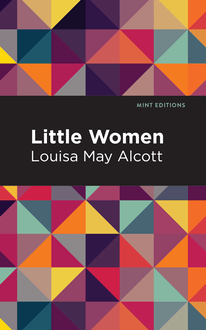-
 Univers
Univers
-
 Ebooks
Ebooks
-
 Livres audio
Livres audio
-
 Presse
Presse
-
 Podcasts
Podcasts
-
 BD
BD
-
 Documents
Documents
-
- Cours
- Révisions
- Ressources pédagogiques
- Sciences de l’éducation
- Manuels scolaires
- Langues
- Travaux de classe
- Annales de BEP
- Etudes supérieures
- Maternelle et primaire
- Fiches de lecture
- Orientation scolaire
- Méthodologie
- Corrigés de devoir
- Annales d’examens et concours
- Annales du bac
- Annales du brevet
- Rapports de stage
La lecture à portée de main
Vous pourrez modifier la taille du texte de cet ouvrage
Découvre YouScribe en t'inscrivant gratuitement
Je m'inscrisDécouvre YouScribe en t'inscrivant gratuitement
Je m'inscrisEn savoir plus
Vous pourrez modifier la taille du texte de cet ouvrage
En savoir plus

Description
Dred: A Tale of the Great Dismal Swamp (1856) is a historical novel by Harriet Beecher Stowe. Although her career peaked with the publication of abolitionist novel Uncle Tom’s Cabin (1852), Stowe continued to work as a professional writer throughout her life. A tale of greed, betrayal, and rebellion, Dred: A Tale of the Great Dismal Swamp displays her impressive imaginative range and admirable moral outlook while illuminating aspects of early American life that would otherwise be consigned to history. Nina Gordon is a young heiress who senses a change in southern plantation culture. Living in her family’s estate, she sees their land losing value through her brother’s drunkenness and aversion to work. Entrusting the plantation to Harry, one of their slaves, she attempts to maintain some normalcy by accepting suitors. She soon falls for Clayton, an idealistic young man who accepts the need for social change and disdains her brother’s cruel mistreatment of Harry. Outside of the estate, the Gordon family’s slaves live in fear of the state’s brutal slave laws alongside a family of poor whites. Despite the culture of silence holding them in place, they hear of a preacher named Dred, a maroon who leads a group of escaped slaves in the Great Dismal Swamp of Virginia and North Carolina. Is he a symbol of hope, or merely an illusion made up by greedy slavecatchers looking to collect bounties? As life on the Gordon plantation becomes more and more unbearable, the prospect of freedom seems worthy of any great risk. Dred: A Tale of the Great Dismal Swamp is an underappreciated masterpiece from the author of Uncle Tom’s Cabin, the most influential American novel of the nineteenth century. With a beautifully designed cover and professionally typeset manuscript, this edition of Harriet Beecher Stowe’s Dred: A Tale of the Great Dismal Swamp is a classic of American children’s literature reimagined for modern readers.
Sujets
Informations
| Publié par | Mint Editions |
| Date de parution | 21 mai 2021 |
| Nombre de lectures | 0 |
| EAN13 | 9781513287591 |
| Langue | English |
| Poids de l'ouvrage | 2 Mo |
Informations légales : prix de location à la page 0,0600€. Cette information est donnée uniquement à titre indicatif conformément à la législation en vigueur.
Extrait
Dred
A Tale of the Great Dismal Swamp
Harriet Beecher Stowe
Dred: A Tale of the Great Dismal Swamp was first published in 1856.
This edition published by Mint Editions 2021.
ISBN 9781513282572 | E-ISBN 9781513287591
Published by Mint Editions®
minteditionbooks.com
Publishing Director: Jennifer Newens
Design & Production: Rachel Lopez Metzger
Project Manager: Micaela Clark
Typesetting: Westchester Publishing Services
“Away to the Dismal Swamp he speeds:
His path was rugged and sore,—
Through tangled juniper, beds of reeds,
Through many a fen, where the serpent feeds,
And man never trod before.
And when on earth he sunk to sleep,
If slumber his eyelids knew,
He lay where the deadly vine doth weep
Its venomous tears, that nightly steep
The flesh with blistering dew.”
C ONTENTS I. T HE M ISTRESS OF C ANEMA II. C LAYTON III. T HE C LAYTON F AMILY AND S ISTER A NNE IV. T HE G ORDON F AMILY V. H ARRY AND H IS W IFE VI. T HE D ILEMMA VII. C ONSULTATION VIII. O LD T IFF IX. T HE D EATH X. T HE P REPARATION XI. T HE L OVERS XII. E XPLANATIONS XIII. T OM G ORDON XIV. A UNT N ESBIT ’ S L OSS XV. M R . J EKYL ’ S O PINIONS XVI. M ILLY ’ S S TORY XVII. U NCLE J OHN XVIII. D RED XIX. T HE C ONSPIRATORS XX. S UMMER T ALK AT C ANEMA XXI. T IFF ’ S P REPARATIONS XXII. T HE W ORSHIPPERS XXIII. T HE C AMP -M EETING XXIV. L IFE IN THE S WAMPS XXV. M ORE S UMMER T ALK XXVI. M ILLY ’ S R ETURN XXVII. T HE T RIAL XXVIII. M AGNOLIA G ROVE XXIX. T HE T ROUBADOUR XXX. T IFF ’ S G ARDEN XXXI. T HE W ARNING XXXII. T HE M ORNING S TAR XXXIII. T HE L EGAL D ECISION XXXIV. T HE C LOUD B URSTS XXXV. T HE V OICE IN THE W ILDERNESS XXXVI. T HE E VENING S TAR XXXVII. T HE T IE B REAKS XXXVIII. T HE P URPOSE XXXIX. T HE N EW M OTHER XL. T HE F LIGHT I NTO E GYPT XLI. T HE C LERICAL C ONFERENCE XLII. T HE R ESULT XLIII. T HE S LAVE ’ S A RGUMENT XLIV. T HE D ESERT XLV. J EGAR S AHADUTHA XLVI. F RANK R USSEL ’ S O PINIONS XLVII. T OM G ORDON ’ S P LANS XLVIII. L YNCH L AW XLIX. M ORE V IOLENCE L. E NGEDI LI. T HE S LAVE H UNT LII. “A LL O VER ” LIII. T HE B URIAL LIV. T HE E SCAPE LV. L YNCH L AW A GAIN LVI. F LIGHT LVII. C LEAR S HINING A FTER R AIN A PPENDIX I. N AT T URNER ’ S C ONFESSIONS A PPENDIX II. A PPENDIX III. C HURCH A CTION ON S LAVERY
I
T HE M ISTRESS OF C ANEMA
“ B ills, Harry?—Yes.—Dear me, where are they?—There!—No. Here?—Oh, look!—What do you think of this scarf? Isn’t it lovely?”
“Yes, Miss Nina, beautiful—but”—
“Oh, those bills!—Yes—well, here goes—here—perhaps in this box. No—that’s my opera-hat. By the bye, what do you think of that? Isn’t that bunch of silver wheat lovely? Stop a bit—you shall see it on me.”
And, with these words, the slight little figure sprang up as if it had wings, and, humming a waltzing-tune, skimmed across the room to a looking-glass, and placed the jaunty little cap on the gay little head, and then, turning a pirouette on one toe, said, “There, now!”
“There, now!” Ah, Harry! ah, mankind generally! the wisest of you have been made fools of by just such dancing, glittering, fluttering little assortments of curls, pendants, streamers, eyes, cheeks, and dimples!
The little figure, scarce the height of the Venus, rounded as that of an infant, was shown to advantage by a coquettish morning-dress of buff muslin, which fluttered open in front to display the embroidered skirt, and trim little mouse of a slipper. The face was one of those provoking ones which set criticism at defiance. The hair, waving, curling, dancing hither and thither, seemed to have a wild, laughing grace of its own; the brown eyes twinkled like the pendants of a chandelier; the little, wicked nose, which bore the forbidden upward curve, seemed to assert its right to do so with a saucy freedom; and the pendants of multiplied brilliants that twinkled in her ears, and the nodding wreath of silver wheat that set off her opera-hat, seemed alive with mischief and motion.
“Well, what do you think?” said a lively, imperative voice,—just the kind of voice that you might have expected from the figure.
The young man to whom this question was addressed was a well-dressed, gentlemanly person of about thirty-five, with dark complexion and hair, and deep, full blue eyes. There was something marked and peculiar in the square, high forehead, and the finely-formed features, which indicated talent and ability; and the blue eyes had a depth and strength of color that might cause them at first glance to appear black. The face, with its strongly-marked expression of honesty and sense, had about it many careworn and thoughtful lines. He looked at the little, defiant fay for a moment with an air of the most entire deference and admiration; then a heavy shadow crossed his face, and he answered, abstractedly, “Yes, Miss Nina, everything you wear becomes pretty—and that is perfectly charming.”
“Isn’t it, now, Harry? I thought you would think so. You see, it’s my own idea. You ought to have seen what a thing it was when I first saw it in Mme. Le Blanche’s window. There was a great hot-looking feather on it, and two or three horrid bows. I had them out in a twinkling, and got this wheat in—which shakes so, you know. It’s perfectly lovely!—Well, do you believe, the very night I wore it to the opera, I got engaged?”
“Engaged, Miss Nina?”
“Engaged!—Yes, to be sure! Why not?”
“It seems to me that’s a very serious thing, Miss Nina.”
“Serious!—ha! ha! ha!” said the little beauty, seating herself on one arm of the sofa, and shaking the glittering hat back from her eyes. “Well, I fancy it was—to him, at least. I made him serious, I can tell you!”
“But is this true, Miss Nina? Are you really engaged?”
“Yes, to be sure I am—to three gentlemen; and going to stay so till I find which I like best. May be, you know, I shan’t like any of them.”
“Engaged to three gentlemen, Miss Nina?”
“To be sure!—Can’t you understand English, Harry? I am now—fact.”
“Miss Nina, is that right?”
“Right?—why not? I don’t know which to take—I positively don’t; so I took them all on trial, you know.”
“Pray, Miss Nina, tell us who they are.”
“Well, there’s Mr. Carson;—he’s a rich old bachelor—horridly polite—one of those little, bobbing men, that always have such shiny dickies and collars, and such bright boots, and such tight straps. And he’s rich—and perfectly wild about me. He wouldn’t take no for an answer, you know; so I just said yes, to have a little quiet. Besides, he is very convenient about the opera and concerts, and such things.”
“Well, and the next?”
“Well, the next is George Emmons. He’s one of your pink-and-white men, you know, who look like cream-candy, as if they were good to eat. He’s a lawyer, of a good family,—thought a good deal of, and all that. Well, really, they say he has talents—I’m no judge. I know he always bores me to death; asking me if I have read this or that—marking places in books that I never read. He’s your sentimental sort—writes the most romantic notes on pink paper, and all that sort of thing.”
“And the third?”
“Well, you see, I don’t like him a bit—I’m sure I don’t. He’s a hateful creature! He isn’t handsome; he’s proud as Lucifer; and I’m sure I don’t know how he got me to be engaged. It was a kind of an accident. He’s real good, though—too good for me, that’s a fact. But, then, I’m afraid of him a little.”
“And his name?”
“Well, his name is Clayton—Mr. Edward Clayton, at your service. He’s one of your high-and-mighty people—with such deep-set eyes—eyes that look as if they were in a cave—and such black hair! And his eyes have a desperate sort of sad look, sometimes—quite Byronic. He’s tall, and rather loose-jointed—has beautiful teeth; his mouth, too, is—well, when he smiles, sometimes it really is quite fascinating; and then he’s so different from other gentlemen! He’s kind—but he don’t care how he dresses; and wears the most horrid shoes. And, then, he isn’t polite—he won’t jump, you know, to pick up your thread or scissors; and sometimes he’ll get into a brown study, and let you stand ten minutes before he thinks to give you a chair, and all such provoking things. He isn’t a bit of a lady’s man. Well, consequence is, as my lord won’t court the girls, the girls all court my lord—that’s the way, you know; and they seem to think it’s such a feather in their cap to get attention from him—because, you know, he’s horrid sensible. So, you see, that just set me out to see what I could do with him. Well, you see, I wouldn’t court him;—and I plagued him, and laughed at him, and spited him, and got him gloriously wroth; and he said some spiteful things about me, and then I said some more about him, and we had a real up-and-down quarrel;—and then I took a penitent turn, you know, and just went gracefully down into the valley of humiliation—as we witches can; and it took wonderfully—brought my lord on to his knees before he knew what he was doing. Well, really, I don’t know what was the matter, just then, but he spoke so earnest and strong that actually he got me to crying—hateful creature!—and I promised all sorts of things, you know—said altogether more than will bear thinking of.”
“And are you corresponding with all these lovers, Miss Nina?”
“Yes—isn’t it fun? Their letters, you know, can’t speak. If they could, when they come rustling together in the bag, wouldn’t there be a muss?”
“Miss Nina, I think you have given your heart to this last one.”
“Oh, nonsense, Harry! Haven’t got any heart!—don’t care two pins for any of them! All I want is to have a good time. As to love, and all that, I don’t believe I could love any of them; I should be tired to death of any of them in six weeks. I never liked anything that long.”
“Miss Nina, you must excuse me, but I want to ask again, is it right to trifle with the feelings of gentlemen in this way?”
“Why not?—Isn’t all fair in war? Don’t they trifle with us girls, every chance they get—and sit up so pompous in their rooms, and smoke cigars, and ta
-
 Univers
Univers
-
 Ebooks
Ebooks
-
 Livres audio
Livres audio
-
 Presse
Presse
-
 Podcasts
Podcasts
-
 BD
BD
-
 Documents
Documents
-
Jeunesse
-
Littérature
-
Ressources professionnelles
-
Santé et bien-être
-
Savoirs
-
Education
-
Loisirs et hobbies
-
Art, musique et cinéma
-
Actualité et débat de société
-
Jeunesse
-
Littérature
-
Ressources professionnelles
-
Santé et bien-être
-
Savoirs
-
Education
-
Loisirs et hobbies
-
Art, musique et cinéma
-
Actualité et débat de société
-
Actualités
-
Lifestyle
-
Presse jeunesse
-
Presse professionnelle
-
Pratique
-
Presse sportive
-
Presse internationale
-
Culture & Médias
-
Action et Aventures
-
Science-fiction et Fantasy
-
Société
-
Jeunesse
-
Littérature
-
Ressources professionnelles
-
Santé et bien-être
-
Savoirs
-
Education
-
Loisirs et hobbies
-
Art, musique et cinéma
-
Actualité et débat de société
- Cours
- Révisions
- Ressources pédagogiques
- Sciences de l’éducation
- Manuels scolaires
- Langues
- Travaux de classe
- Annales de BEP
- Etudes supérieures
- Maternelle et primaire
- Fiches de lecture
- Orientation scolaire
- Méthodologie
- Corrigés de devoir
- Annales d’examens et concours
- Annales du bac
- Annales du brevet
- Rapports de stage














